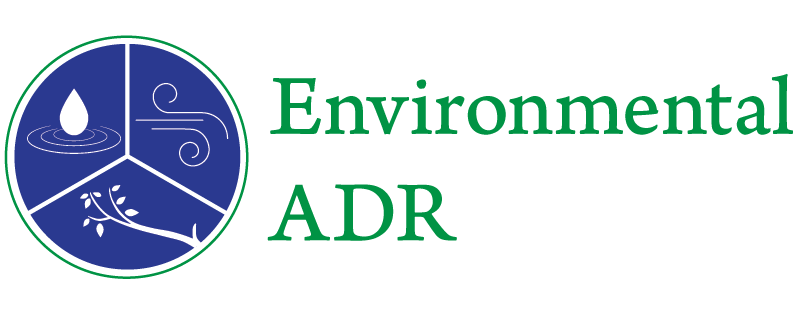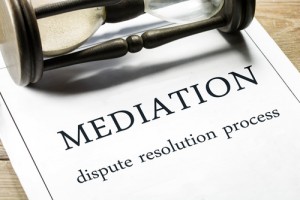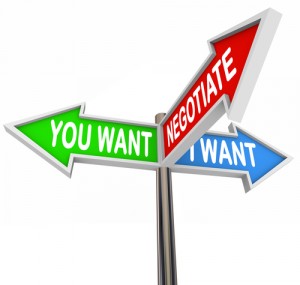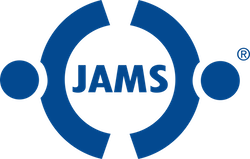“If it bends it’s funny; if it breaks, it isn’t.”
Woody Allen, from Crimes and Misdemeanors
 Flexibility is one of the most important attributes we need to develop in life. As Woody Allen reminds us, it is what separates comedy from tragedy; it’s what allows us to continue moving forward, without breaking, through the adversities we face in every day life.
Flexibility is one of the most important attributes we need to develop in life. As Woody Allen reminds us, it is what separates comedy from tragedy; it’s what allows us to continue moving forward, without breaking, through the adversities we face in every day life.
Flexibility is also one of the key attributes of mediation. It is an integral part of what makes mediation a powerful alternative to traditional litigation. In the mediator’s toolkit, there is nothing more essential than the ability to approach each dispute without preconceptions about the best path forward for resolving the conflict.
To illustrate the paramount importance of flexibility in mediation, I want to share with you my recent experience when I was asked to mediate a case between a university, the city and county in which it was located, and concerned groups of citizens. The parties were embroiled in controversy involving the university’s multi-year expansion plan and its potential effects on resources such as water, housing and traffic.
My first step was to meet separately with each party before I convened a joint session with all stakeholders. This is an initial step I frequently find to be useful in multi-party disputes. It allows me to meet and discuss privately with each constituency their respective views on the history of their dealings together, including their inability to come to an agreement among themselves, to identify the impediments to settlement, including views and misconceptions they hold about other parties, to learn what are important elements of a successful negotiation, and to hear their personal ideas on workable settlement structure and content – their wish lists.
In this particular case it soon became apparent that the inability to reach agreement prior to the mediation was due in large part to their inability to communicate clearly and comfortably with one another. Past dealings and strongly held personal viewpoints had interfered with the exchange of proposals, the parties’ respective views on the proposals and parties’ making them, and their ability to respond in ways that propelled negotiations forward, toward settlement.
I decided that establishing a framework for settlement called for separating the present negotiation from past efforts. We accomplished this by starting off with a session aimed at dispelling misconceptions which I had observed, beginning to build trust in the process, and even though it was early in the process, starting to map out the zone of potential agreement. The parties found this to be a hopeful start. [Read more…]

 There are no universal rules governing mediation agreements.
There are no universal rules governing mediation agreements.
 Practitioners in the field of ADR lament that mediation has become increasingly “judicialized” – meaning that it is all too often viewed as just another step on the litigation path toward trial. That was not the prevailing view when I began my mediation practice almost 25 years ago. Mediation was viewed as a uniquely significant settlement opportunity, where the parties came prepared to explore settlement options and to negotiate their way to that end.
Practitioners in the field of ADR lament that mediation has become increasingly “judicialized” – meaning that it is all too often viewed as just another step on the litigation path toward trial. That was not the prevailing view when I began my mediation practice almost 25 years ago. Mediation was viewed as a uniquely significant settlement opportunity, where the parties came prepared to explore settlement options and to negotiate their way to that end.
 What Is the Added Value of the Mediator In Getting Cases Settled? It is important to note that mediation is a tool that can help in some but not all cases. Lawyers and clients settle cases everyday without the assistance of a mediator. Clearly, mediation is not warranted in those cases and is not intended to replace what lawyers do well on their own. In fact, most cases reach resolution in this way, and that is a very good thing.
What Is the Added Value of the Mediator In Getting Cases Settled? It is important to note that mediation is a tool that can help in some but not all cases. Lawyers and clients settle cases everyday without the assistance of a mediator. Clearly, mediation is not warranted in those cases and is not intended to replace what lawyers do well on their own. In fact, most cases reach resolution in this way, and that is a very good thing. I’d like to put some meat on the bones of the cost-saving aspects of environmental mediation. I have argued that environmental mediation, properly executed, provides the opportunity to eliminate costs of duplicate work by multiple parties, while preserving every party’s right to negotiate hard on the merits of the dispute and to reach an agreed-upon allocation of the costs of dealing with the contamination at issue. In this blog, I present a hypothetical situation – based on successful mediations I have conducted – to help the reader understand why I say this.
I’d like to put some meat on the bones of the cost-saving aspects of environmental mediation. I have argued that environmental mediation, properly executed, provides the opportunity to eliminate costs of duplicate work by multiple parties, while preserving every party’s right to negotiate hard on the merits of the dispute and to reach an agreed-upon allocation of the costs of dealing with the contamination at issue. In this blog, I present a hypothetical situation – based on successful mediations I have conducted – to help the reader understand why I say this.
